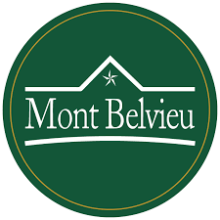Setting the Bar High in Colorado: Longmont's NextLight - Community Broadband Bits Podcast 392

NextLight, the municipal Fiber-to-the-Home (FTTH) network in Longmont, Colorado, has been serving residents and businesses in the community since 2014 and offers reliable gigabit connectivity at affordable rates. This week, Director of NextLight, Valerie Dodd, is on the show to discuss the past, present, and future of NextLight with Christopher.
NextLight has implemented some special marketing and customer service techniques, which has helped achieve the high take rate that continues to grow. As the network expands to all areas of the city, Longmont has used some creative approaches and contended with a few challenges to connect residents and businesses. Valerie and Christopher talk about some of these decisions and how those choices have panned out.
They also discuss the community's commitment to digital inclusion and how it's paying off in an increasingly diverse and growing city. Valerie describes how her experience with a private sector provider has contributed to NextLight's focus on subscribers and breaks down some of the key differences between a traditional municipal utility, such as an electric service, and broadband service from the city.
We want your feedback and suggestions for the show-please e-mail us or leave a comment below.
This show is 29 minutes long and can be played on this page or via Apple Podcasts or the tool of your choice using this feed.
Transcript below.
We want your feedback and suggestions for the show-please e-mail us or leave a comment below.
Listen to other episodes here or view all episodes in our index. See other podcasts from the Institute for Local Self-Reliance here.
Thanks to Arne Huseby for the music. The song is Warm Duck Shuffle and is licensed under a Creative Commons Attribution (3.0) license.




 As a recap, the CenturyLink Saga actually began on August 22, 2018, when our Co-Director and head of the Energy Democracy Initiative, John Farrell, contacted our Internet access and VoIP provider to request a phone cord. If you read the
As a recap, the CenturyLink Saga actually began on August 22, 2018, when our Co-Director and head of the Energy Democracy Initiative, John Farrell, contacted our Internet access and VoIP provider to request a phone cord. If you read the